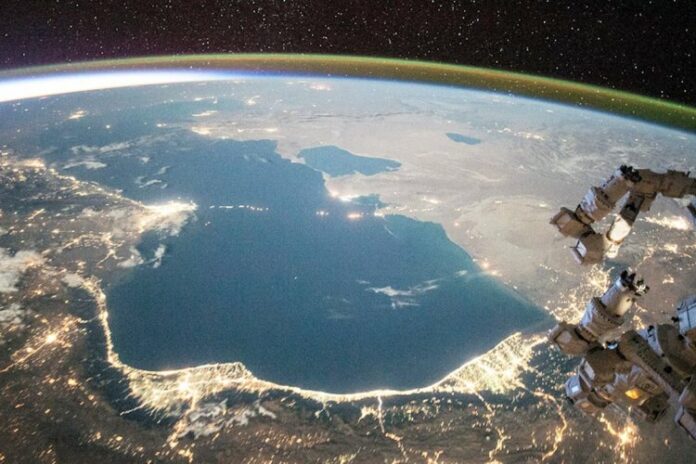Technically, this sea is a land-locked lake, but it is the largest on the planet (371.000 km2), and quite salty. Since the ’90s, the water level has been dropping a few centimeters every year. This drop will accelerate during the upcoming decades, according to scientists from the German universities of Gießen and Bremen, together with Dutch geologist Frank Wesselingh.
The water levels of the Caspian Sea will be 9 to 18 meters lower than they are now, German and Dutch researchers calculate. In an article published in Communications Earth & Environment, they urge the world to act.
Wesselingh says:
“If the North Sea would drop 2 or 3 meters, access to ports like Rotterdam, Hamburg and London would be impeded. Fishing boats and container giants alike would struggle, and all the countries on the North Sea would have a huge problem. Here, we are talking about a decrease of no less than nine meters—in the best-case scenario.”
In the worst-case scenario, the drop is 18 meters, and the Caspian Sea will lose over a third of its surface area.
In the journal Communications Earth & Environment, the three scientists are calling for action. Increased evaporation and the loss of sea ice in the winter will accelerate water-level drop, they explain. This will affect the unique ecosystems in the area, with their migratory birds, beluga and the endemic Caspian seal, which raises its offspring on the sea ice in the North of the Caspian Sea. It will also have dire consequences for the millions of people living near the sea, or around the rivers that run into it.
These problems also play in a region that is already politically tense. Azerbaijan, Russia, Iran, Turkmenistan and Kazakhstan all share a piece of the Caspian Sea, and would have to make new agreements regarding borders and fishing rights. Wesselingh and his German colleagues urge the formation of an international task force led by the United Nations Environmental Programme that would coordinate the mitigation of this problem.



